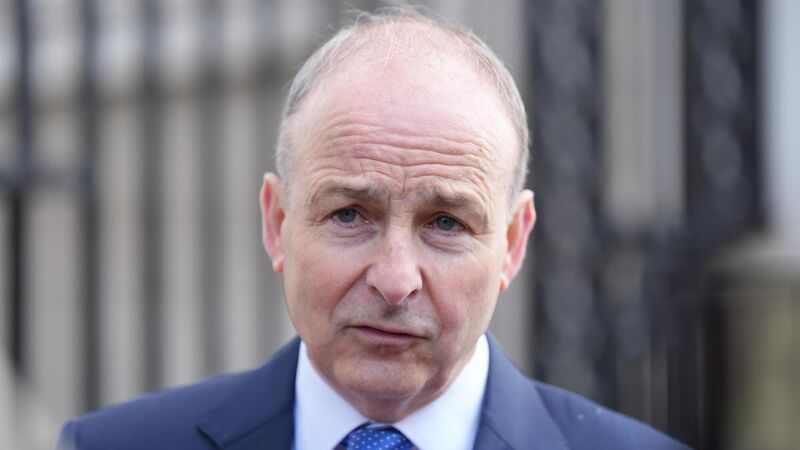No external experts in review team of national security structure

Taoiseach Micheal Martin: 'The current National Security Committee will undertake the review of our national security structures and report to the Ministerial Council on National Security before year end.'
A planned examination of Ireland’s national security structures is to be a purely “internal review” with no external experts in the review team, the Government has confirmed.
The commitment, which was contained in the programme for government will be carried out by the existing National Security Committee.
This committee is chaired by the country’s top civil servant and comprises senior civil servants from the Departments of Justice, Defence, Foreign Affairs, and Environment (which houses the National Cyber Security Centre) as well as the Garda Commissioner and Defence Forces’ Chief of Staff.
In reply to a question from Fianna Fáil Wexford TD Malcolm Byrne, Taoiseach Micheál Martin said: “The current National Security Committee will undertake the review of our national security structures and report to the Ministerial Council on National Security before year end."
Last March, the Government announced it was setting up a new Ministerial Council on National Security, comprising the Taoiseach as chair, the Tánaiste and ministers for Justice, Defence, and Foreign Affairs.
Under the programme for government, the National Cyber Security Centre is to be transferred to the Department of Justice.
Some experts have expressed surprise that the examination will be solely an internal task.
“We have already moved a long way from the major changes to national intelligence structures and capabilities promised by the Fianna Fáil party in its manifesto, namely the establishment of a new department and a separate intelligence service,” Edward Burke, Assistant Professor at the UCD Centre for War Studies, said.
“Now what we have instead is a promise to have an internal review by the government of its own performance when it comes to national security.
“This may lead to some progress. But it is also a missed opportunity to draw upon independent experts to conduct a wide-ranging review and offer recommendations on countering rising threats when it comes to foreign espionage, disinformation, extremism and potential threats to critical national infrastructure.”
He said other liberal democracies, including New Zealand and Norway, had carried out intermittent and highly valuable independent reviews of national intelligence which have led to improved capabilities, in addition to a better public understanding of threats and the role of the intelligence services among the wider public.
Declan Power, former Defence Forces' officer and security analyst, said the examination was “a step in the right direction”, but said he hoped it would have “more support and success” than the National Security Analysis Centre (NSAC).
NSAC was a key recommendation of the Commission on the Future of Policing in its September 2018 report, which would both analyse national intelligence and coordinate the activities of the security services. The centre never reached that ambition and has recently been scaled back.
Mr Power continued: “If this new initiative is to function as it should and not just be a talking shop or mudguard then immediate steps must be taken to ensure security clearances for all people connected with it, so they can have the necessary candid conversations and access to their colleagues in the Irish Military Intelligence Service and the Garda National Crime and Security Service.
“To ensure success, external expertise should be sought with regard to decision-making structures and developing a fusion approach to our national security assets.
“This may protect against the institutional group think that can sabotage such endeavours.”





